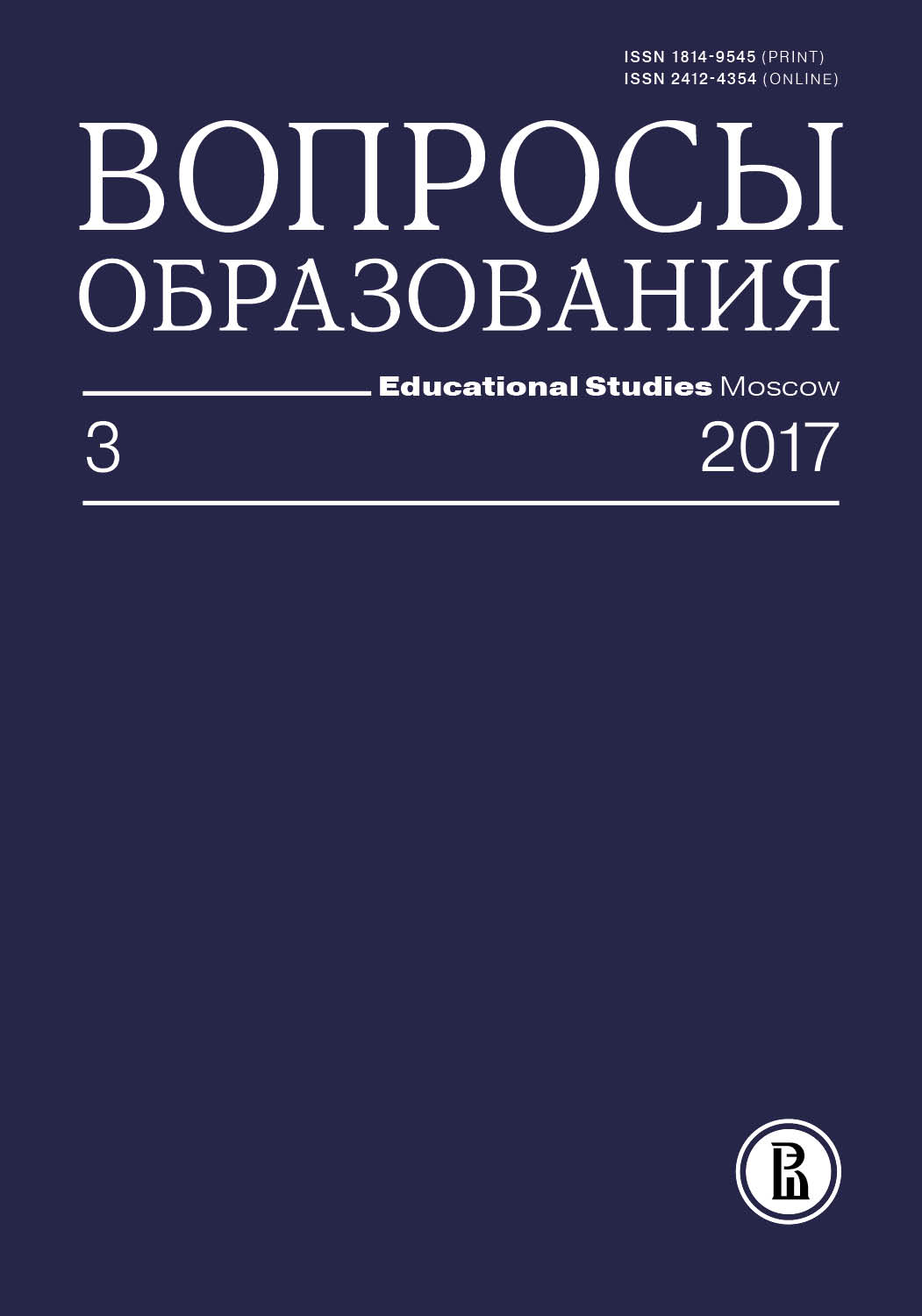The Myth about Universal Higher Education: Russia in the International Context
Abstract
It is widely believed that higher education in Russia has become almost universal and more people go to universities compared to most European countries. In this paper we explore this issue empirically with the Russian and European census data and data from the Trajectories in Education and Careers (TREC), a longitudinal cohort study. According to the 2010 census, only 34% of people aged between 25 and 34 in Russia have university degrees, which is nearly the same as in most Eastern European countries and slightly fewer than in Western Europe. The TREC data show that only about 50% of 2012 ninthgrade graduates were university students in 2015. The expansion of higher education in Russia has been in line with the overall European trends. Similar to other countries, there have been changes to the gender composition of university students in Russia over the last two decades, with girls being more likely to attend university than boys. The analysis of social backgrounds of students with different educational trajectories reveals a onsiderable social inequality within the Russian education system. Eighty-four percent of school graduates with university-educated parents are admitted to university, as compared to only 32% of children from less-educated families. Graduation from ninth grade represents an educational fork that is crucial for inequality, as children from less socially advantaged families tend to opt for vocational education at this stage. Graduation from eleventh grade is a less important educational transition: at least 80% of high school students get admitted to university after graduating from 11th grade.









